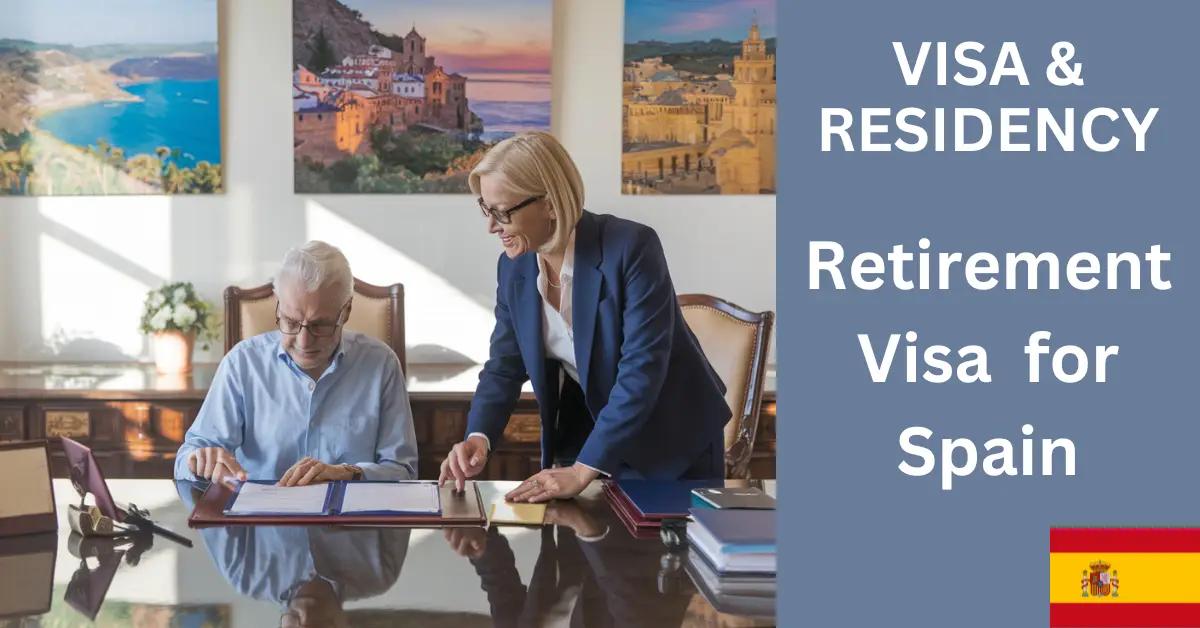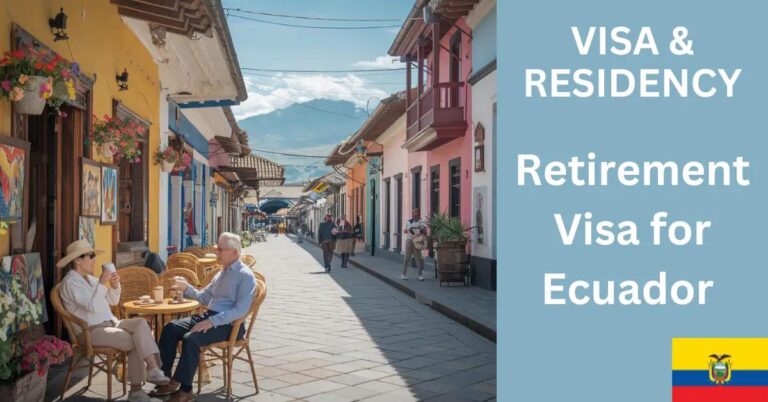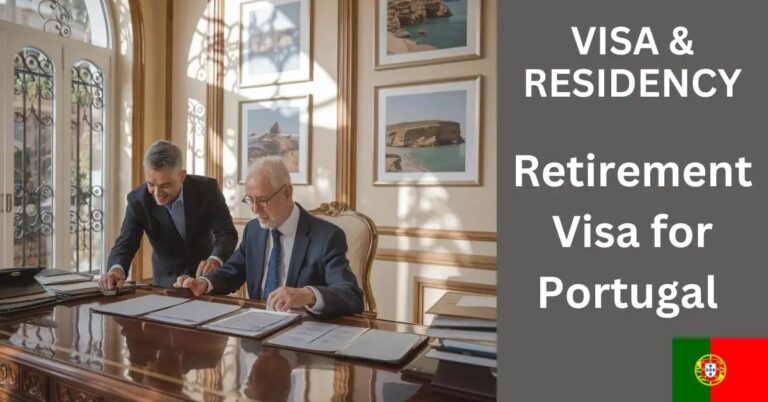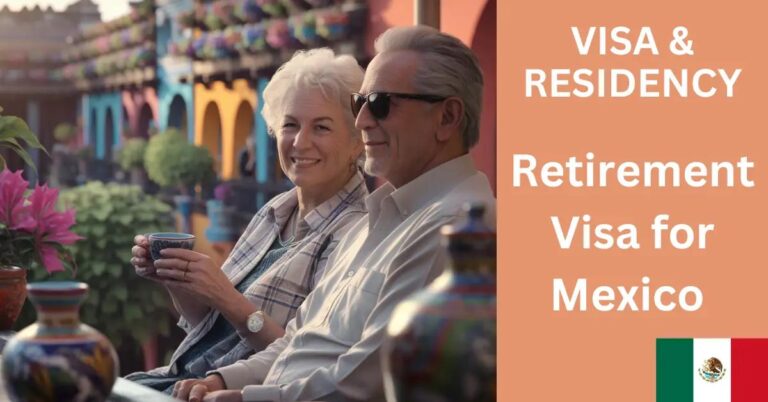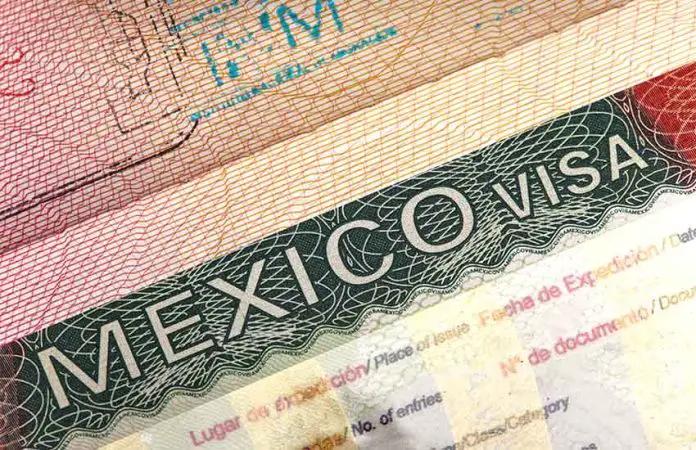TL;DR:
- U.S. citizens need a non-lucrative visa for retiring in Spain, requiring proof of financial means, translated/legalized documents, and a clean police record.
- Annual income should be around €27,115, with additional savings for dependents.
- Apply for the visa through the Spanish consulate in the U.S., followed by a residency card application in Spain.
- Healthcare access involves registering an S1 form or opting for private insurance.
- Prepare documents like application form, valid passport, photos, medical and criminal checks.
- Visa renewal requires these documents plus proof of health insurance and financial stability.
- The cost of living approximates €25,000 per year, with varied housing costs.
- Benefits include Schengen travel freedom, quality healthcare, and lower living expenses compared to other EU countries.
Dreaming of soaking up the sun and culture in Spain during your golden years? Let's dive into the retirement visa process for this European gem! From application steps to financial requirements, and the intricacies of healthcare access, we've got you covered. Discover how to meet eligibility criteria, dodge common pitfalls, and secure a stress-free transition. Ready to make Spain your new home? Join me as we unravel all you need to know!
Retirement Visa Requirements for Spain: What Do You Need?
When considering retirement in Spain, it is vital to understand the visa process. If you're a U.S. citizen looking to retire in Spain, there’s a structured way to follow.
First, you must apply for a non-lucrative visa. Begin by gathering necessary documents, such as proof of financial stability and a clean police record. Make sure they are translated and legalized. Documents should show you have enough savings to live in Spain. Proof of a non-communicable bank statement is essential, as it must reflect a specific amount dictated by Spanish law, which usually changes yearly.
Schedule an appointment with the Spanish consulate in the U.S. It is advisable to prepare copies of all documents before the meeting. Once there, you'll also submit forms like the national visa application form. Filling these with precision is crucial. Moreover, your passport must be valid and unexpired; ensure at least one blank page.
The Spain retirement visa 2024 updates emphasize that your financial proof must accurately verify income sources. You should note possible legal changes and stay updated on them through official sources.
When approved, your visa allows stay for up to one year. Stay aware that while the process may seem ongoing, focus is key. Once in Spain, you apply for a residency card within 30 days. Remember that your retirement dream requires timely actions.
Before starting, assess your comfort with a new culture and language barriers. This decision will impact your life, so consider its full implications.
Focusing on these core tasks will set you on a clear path to enjoying a relaxed, sun-drenched Spanish lifestyle.
Eligibility for Spanish Retirement Visa
To retire in Spain, certain rules must be followed. You must have enough money to support yourself without working in Spain. This means having a steady income or savings that can cover your living expenses.
In 2024, Spain made some changes to the retirement rules. Anyone wishing to retire here needs to show higher proof of income. This helps ensure you can live well without needing extra help.
Here are the main rules: You must be 18 or older, and show that you have enough money. A criminal record check to show you have no major offenses is also required. You should also not have any serious illnesses.
One common mistake when planning to retire in Spain is not understanding all the financial needs. Not being clear on your income could delay your application or a possible rejection. Another pitfall is failing to complete all necessary paperwork correctly.
First, keep organized records of all your finances. Make sure these documents show a solid financial history. This help cover all bases when applying for your visa.
Secondly, you should get a good understanding of the new rules for 2024. Seek advice from professionals who know about Spanish retirement visas. They can provide updated insights based on the latest legal changes.
To avoid health-related hurdles, have a detailed medical checkup. This should be done before your application to ensure you meet Spain's health requirements.
You should connect with other retirees in Spain. They can share their experiences and may offer guidance too. Check out local expat groups online for more information.
For more details, you could explore government websites or consult with legal experts familiar with Spanish immigration policies for retirees. This will keep you informed on any upcoming updates or changes in the requirements.
Visa Application Documents
To retire in Spain, you must gather specific documents for your retirement visa. You start with a completed national visa application form. A valid passport is essential, with at least one year remaining and two blank pages. You will also need a couple of recent passport-sized photos.
Health is important, so a medical certificate is necessary. This document should say you are free from harmful diseases. A criminal background check from the FBI must be included, showing no past serious crimes.
You must prove your income to show financial stability. Bank statements or pension records help prove you can support yourself in Spain. Although it sounds tricky, it shows the government you won't need financial help.
For non-spousal dependents, like an adult relative, additional documents are required. Special forms must be filled out for these dependents, which give detailed personal information.
Document translation is a key step. All documents, not in Spanish, must be translated into Spanish. A certified translator should do this to avoid mistakes. The translations show respect for Spain's language requirements.
Legalization of the documents is another big step. You need an apostille stamp for most documents, which makes them official internationally. The American Embassy can help with some of this.
It's wise to make duplicates of everything you submit. This helps if any documents get lost. Also, it will make updating them much simpler during the visa process. Ensure all information matches on every document to prevent delays.
For more detailed insights and study, you can always check Spain's Consulate General website. Here you will find more guidance, especially tailored for U.S. citizens. Preparing these documents correctly is your best path to a smooth visa application process.
Financial Requirements for Retirement in Spain
When planning to retire in Spain, you need to know about the financial requirements. The Spain retirement visa income requirement is a crucial step in this process. To qualify, you must show a reliable income source.
For a non-lucrative visa, you need an annual income of around €27,115. This is so the Spanish government knows you can support yourself without working. Your income can come from pensions, savings, rental incomes, or other consistent sources.
You also have to show minimum financial savings. It's similar to having a safety net, so the government knows you can handle surprises. The exact savings amount depends on your personal circumstances, but it is usually more than €6,778 per year for each additional family member.
Understanding Spanish financial proof requirements is vital. You must provide bank statements, pension receipts, or income certificates. These documents must span three months to confirm the stability of your finances.
Also, you won't need advanced language skills to understand these financial requirements. The needed documents are usually straightforward. However, you should be prepared to translate and legalize them. The Spanish authorities require documents in Spanish for visa application processes.
By understanding what the non-lucrative visa income requirements entail, you'll be better prepared to start your retirement journey in Spain. Accurate and detailed financial records raise your approval chances significantly. Discussing these details with a visa expert or consulting the official Spanish government immigration site can give more insights.
Make sure to organize all your paperwork early. Budget your savings carefully to meet these requirements before applying. Once you understand the needed financial standing, the journey to your Spanish retirement can start successfully.
Healthcare Access in Spain for Retirees
When you retire in Spain, healthcare access is vital. Luckily, Spain has a solid public healthcare system. This system offers comprehensive services for residents, including retirees. So, once you're officially a resident, you can use Spain's public healthcare.
To access this public healthcare, you need an S1 form. This form is essential if your home country has a healthcare agreement with Spain. Countries such as those in the EU often provide the S1 form to their retirees. But make sure to verify this based on your nationality. Once you have it, register it with the Spanish health authorities. You'll then receive a health card. This card lets you enjoy medical care in Spanish public health centers.
For expats, private insurance can be another option. It's important to note that having private insurance is often a requirement during the visa process. Health insurance companies in Spain offer many plans to meet various needs. Explore the plans first to ensure hospital and specialist coverage fits your needs.
These private plans may provide quicker access to specialists. They might even cover services that the public system doesn't. However, it’s crucial to understand what each plan covers and any limitations, such as age or pre-existing conditions.
Choosing between public and private healthcare depends on personal preference and circumstances. Some retirees opt to combine both, using private insurance to supplement public healthcare. This way, you have the flexibility and coverage suited to your retirement life.
Healthcare access involves more than just getting treatment. Finding English-speaking doctors and clinics enhances your experience in Spain. Look into areas with a high expat population. These locations often offer services in various languages.
It's always wise to stay informed about any changes in healthcare regulations for expats. Check official resources to ensure you access the latest and most accurate information regarding your healthcare needs in Spain.
Cost of Living in Spain for Retirees
How much money do I need in the bank to retire to Spain? To live comfortably in Spain, you should have at least €25,000 per year. This is just a base amount and depends on where you choose to live. Many retirees find that Spain offers great value compared to other EU countries.
Let's break down some typical living expenses. Rent varies greatly, but plan for around €850 monthly for a decent apartment in a mid-sized city. If you prefer bustling Madrid or beautiful Barcelona, expect rates to go higher, potentially over €1,200 a month. Smaller towns or rural areas are more budget-friendly, often below €600 monthly.
Utilities like electricity, gas, and water usually cost about €120 monthly. Internet service adds another €35. Phone plans with unlimited calling and data hover around €20. Groceries for a couple can average €300 monthly, allowing you to savor fresh produce and local flavors.
Dining out is a joy in Spain! Budget around €10-€15 for a typical meal in a local restaurant. If you enjoy cooking, fresh market visits can lower your food budget even further while keeping meals exciting.
Spain's cost of living compares favorably with many EU nations. France and Germany, for instance, have higher average costs. Countries like Portugal might be slightly cheaper, but Spain offers a great balance of cost and quality of life.
For budgeting your retirement, consider seasonal fluctuations in expenses. Winters might mean higher heating costs. Plan for some extra in your budget for unexpected expenses to ensure a smooth and enjoyable retirement.
With some planning and savvy budgeting, you can enjoy the rich culture, delightful weather, and vibrant communities Spain offers, making it an enticing choice for your golden years.
Obtaining a Spanish Residency
To live in Spain as a retiree, getting a non-lucrative visa is key. For U.S. citizens dreaming of sunny Spanish days, this visa lets you stay without work. First, gather documents like a clean police record and health insurance proof. You need to show enough money to support yourself too.
Once in Spain, you apply for residency. Go to the local police station with your visa and documents. They’ll provide a residency card if all is in order. This card makes your stay official, and you get to enjoy life like any Spanish citizen, minus voting rights.
As retirees, securing Spanish residency is vital. It grants you access to healthcare and other public services. Plus, it simplifies travel across Europe's Schengen Area. Imagine hopping on a quick train to France or Italy without needing extra visas!
Legal help can smooth this process. An immigration lawyer knows all new rules and handles paperwork fast. They ensure you're not missing vital details or forms. Some firms even offer services in English, easing any language worries.
Resources like expat forums online are great too. They connect you with others who have faced the same challenges. People share tips and experiences that might save you time and headaches.
Think of this journey as an adventure. You're not just moving; you're gaining a new life in Spain. Embrace the blend of cultures, food, and sunny beaches. Each step you tackle brings you closer to sipping sangria on a warm, beautiful terrace. This transition may seem daunting, but soon, you’ll find yourself calling Spain home sweet home.
Spanish Retirement Visa Cost
When deciding to retire in Spain, understanding the costs is crucial. First, let's discuss the application fees. For the retirement visa, expect to pay around €60 to €150. But this is just the start. You will also face other expenses.
Now, you might wonder about other costs. You'll need medical insurance. This cost varies but could be about €1,000 per year. Then, there's document notarization and translation, which might cost €200. It's key to account for these as you plan.
Let's talk strategy to save some money. You can cut costs by doing some tasks yourself. For instance, gather documents yourself instead of hiring a service. Contact the Spanish consulate, and they will help you understand what's needed. Also, compare prices for translators and insurance options to save.
Budgeting well is essential. Spain requires financial proof to grant a visa. Keep this in mind when planning. Learn about all fees to avoid surprises. Preparing ahead can save you time, money, and headache.
If costs overwhelm you, consider other options. Maybe a part-time job could help balance your finances. Or, look for less costly cities in Spain. Not every city has the same living expenses.
Planning your budget wisely makes the process smoother. Understanding all fees helps prevent financial issues later. Being thorough now saves you trouble in the future.
So, keep track of all these costs. Careful planning and saving tips will make retiring in Spain less stressful. A good plan lets you enjoy Spain's incredible lifestyle without financial strain. Retiring in Spain can be a dream come true if you budget smartly.
Renewing a Retirement Visa in Spain
When your retirement visa is about to expire, you have to renew it. Here’s how you can do it step by step. First, gather all necessary documents. These include your expired visa and your passport. You also need proof of financial support. Show that you can sustain yourself while living in Spain.
Next, you must prepare proof of health insurance. It must cover you while in Spain. Your renewal application must also include a medical certificate. This shows you are in good health. Make sure it is issued by a recognized doctor.
Now, lodge your application early. Applying early means less stress. Submit your renewal at least 60 days before your visa expires. Do not wait until the last moment. This allows time to address any issues with your application.
Visit your local police station or foreigner's office. Submit all your documents and the completed renewal form. There, they will check your application. Bring copies of everything just in case.
During the renewal process, pay the renewal fee. Bring cash or a card for payment. Without payment, they cannot process your renewal.
Here are a few strategies to ensure success. Double-check your documents before submission. Make sure they are up-to-date and correct. Errors can delay your renewal. Also, stay informed about any changes. Rules can change each year, so read up on them.
Lastly, maintain your residency requirements. Stay within the legal limits of time you can be out of Spain. If you stay out too long, it affects your renewal. Keep records of your time in Spain.
Renewing a retirement visa isn’t hard. Just be organized and stay on top of deadlines. This way, you can continue enjoying your retirement in beautiful Spain.
Spanish Residency Benefits for Retirees
When you think about retiring in Spain, know this: the benefits are amazing. One major perk is the travel freedom. With Spanish permanent residency you can explore the entire Schengen Area. This means you get to visit many European countries without extra visas. The freedom to travel at will is a thrilling benefit for any retiree with a love for exploring new places.
There's more than just travel perks. Spain offers a wonderful lifestyle. Imagine long sunshine-filled days, beautiful beaches, and rich cultural traditions. Living in Spain means enjoying a slower pace of life and indulging in delicious Spanish cuisine every day. Those pleasant outdoor markets and charming cafes become your new routine.
Healthcare is also a big plus. The Spanish healthcare system is highly rated and available to residents. Once you have residency, you can access quality medical care. This aspect eases worries about health needs as you age. Good healthcare is always vital, and Spain provides it.
Furthermore, Spain offers retirees excellent integration into its vibrant communities. The friendly locals help make you feel at home. Joining in local activities can lead to meaningful connections. Culture-rich cities and traditional festivals keep life exciting and interesting.
Finally, economic benefits matter too. Living in Spain is often cheaper than in other EU countries like France or Italy. The cost of living is generally lower, meaning your dollars go further. This economic advantage allows you to enjoy a better quality of life on your retirement savings.
In summary, retiring with permanent residency in Spain opens a world of benefits. Travel, lifestyle, healthcare, community, and cost all add up to make Spain a top choice. If you're considering where to enjoy your golden years, Spain may just be the perfect place.
Conclusion
Transitioning to Spain for retirement requires planning and knowledge. We've outlined the visa application steps, updated 2024 requirements, and highlighted important financial and healthcare considerations. Make sure you understand the eligibility criteria and gather all necessary documents. Also, keep an eye on legal changes and financial prove requirements. Embrace Spain's vibrant healthcare system and prepare for the cost of living. Budget wisely and explore residency benefits. Stay informed and proactive, and you'll navigate this exciting journey smoothly. Retirement in Spain offers a fulfilling lifestyle if you plan well and adapt quickly.

